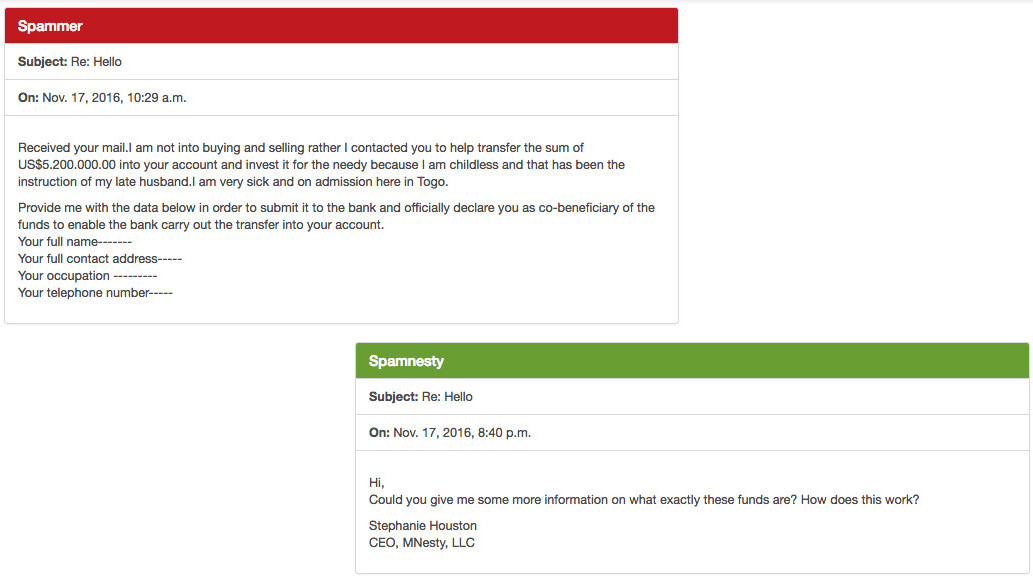
My inbox is a strange and magical place. Earlier today, somebody wrote to let me know that a Togolese prince wants to give me a cool $10 million. I could definitely use the money. Shortly after I got an email that told me my bank account has been locked until I verify my username and password. I didn’t realize I had an account with Citibank, but there you go.
Obviously, these are spam emails. It’s hard to imagine who could possibly fall for them, but a lot of people do. Spam is a highly profitable industry, and despite our best efforts, it’s proven to be impossible to shut it down.
Which is where Spamnesty comes in. This service takes the fight to the spammers by wasting as much of their time as possible, in the most hilarious way.
Here’s how it works. You forward any spam emails you get to an email address. This strips off all your personal information and substitutes it with those of the CEO of MNesty, LLC – a fictional maritime logistics company in landlocked Mongolia. A chatbot will then kick in and send the scammer a plausible-sounding response.
The response varies on the type of spam email you get. So if you get an unsolicited email about web development or SEO services, it’ll ask for further details. If a Nigerian prince gets in touch, it’ll feign interest and ask how to transfer the money that’s inevitably demanded. Spamnesty has an extensive repertoire of ostensibly-legitimate responses, all designed to engross a spammer in a fruitless back-and-forth.
According to the developer, Stavros Korokithakis, most spammers give up “after around 3-5 messages, but some have sent up to 15 messages before giving up in frustration.”
It’s all good fun. You can check out the catalogue of email exchanges here. And if you want to get your own back on a spammer, you can forward their emails to sp@mnesty.com.
Get the TNW newsletter
Get the most important tech news in your inbox each week.





